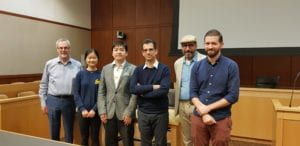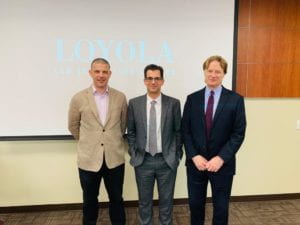A new book by Goldsmiths’ Head of Law, Prof Dimitrios Giannoulopoulos, explores the perennial controversy over the use of improperly obtained evidence in criminal trials. This is the first book to do so from a cross-cultural – comparative and international human rights – perspective.
The book compares and contrasts various procedural mechanisms, within Anglo-American and continental legal systems (with a focus on the United States, Greece, France and England and Wales), that may stop the jury, or the judge as a fact-finder, from accessing or using unlawfully obtained evidence – sometimes crucial, reliable evidence – when reaching a verdict or making a finding of guilt.
Analysis focuses on confessional evidence and evidence obtained by search and seizure, telephone interceptions and other means of electronic surveillance.
The book attempts to reinvigorate the idea of excluding evidence to protect constitutional or human rights (the rights thesis), arguing that there is significant scope for Anglo-American and Continental legal systems to place a renewed emphasis on it, particularly in relation to confessional evidence obtained in violation of custodial interrogation rights. This is because we can locate an emerging rapprochement, and unique potential for European Court of Human Rights jurisprudence to build consensus, in this respect.
In marked contrast, remaining divergence with regard to evidence obtained by privacy violations means there is little momentum to adopt a reinvigorated rights thesis more widely.
English law, in particular, offers a key illustration of discordance between privacy violations and violations of custodial interrogation rights. The discretionary powers that courts possess in relation to the latter often lead to exclusion. In contrast, the exclusion of evidence obtained in violation of the right to privacy is a rare occurrence in the related jurisprudence.
The book is available by Hart Publishing and on Bloomsbury online collections, and you can read a more detailed description here.

Book presentation at Berkeley Law School (10 April 2019), hosted by Prof Charles Weisselberg (first from left) and Prof Jonathan Simon (second from right)
Since publication of the book, Prof Giannoulopoulos has presented his research in this area to academic audiences in England (most recently at the Law School at the University of Exeter), Greece (at a major symposium of the Hellenic Criminal Bar Association) and in the United States, where the ‘exclusionary rule’ has been the source of one of the most enduring and controversial debates in American constitutional criminal procedure.

“Policing Los Angeles Forum” presentation, Loyola Law School (8 April 2019). From left to right: Prof Eric Miller, Prof Dimitrios Giannoulopoulos, Prof Christopher Hawthorne
In the United States, Dimitrios spoke at Loyola Law School’s Policing Los Angeles Forum, Stanford Law School, where the talk was hosted by Prof David Sklansky and was attended by many students in his constitutional criminal procedure class, and Berkeley Law School, where the event was sponsored by the Sho Sato Program in Japanese and US Law and the Centre for the Study of Law and Society.
A podcast from Prof Giannoulopoulos’ presentation at Loyola Law School is available here.